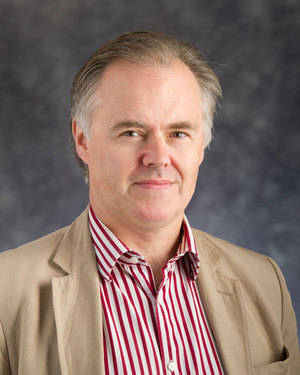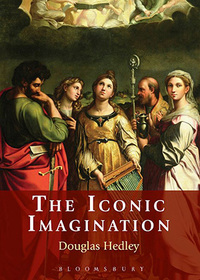
- University of Cambridge
- Professor of the Philosophy of Religion
- Templeton Fellow (2013-2014)
- "The Iconic Imagination"
Douglas Hedley is Professor of the Philosophy of Religion at the University of Cambridge in the Faculty of Divinity. He specializes in Neoplatonism, the Cambridge Platonists, aspects of Romantic and Idealistic thought, and Philosophy of Religion.
His monographs include The Iconic Imagination (2016), Sacrifice Imagined: Violence, Atonement and the Sacred (2011), Living Forms of the Imagination (2008), and Aids to Reflection and the Mirror of the Spirit: Coleridge, Philosophy and Religion (2000). He has published articles in The Journal of the History of Ideas, Religious Studies, and Faith and Philosophy. He is co-editor of the series Studies in Philosophical Theology published by Peeters of Leuven.
He is the Principal Investigator of a UK Arts and Humanities Research Council Grant ‘Revisioning Cambridge Platonism’ (2013) and has been a Visiting Fellow at the Center for Advanced Studies at the Ludwig Maximilians University of Munich (2012). He gave the Teape lectures in India (2006) and was the Alan Richardson Fellow at Durham University in 2004. In 2002 he was Visiting Professor at the EPHE, Sorbonne, Paris. He currently serves as co-chair of the Platonism/Neoplatonism group at the American Academy of Religion.
Publications
-
'Devout Contemplation and Sublime Fancy' of the Cambridge Platonists and Their Legacy Book Chapter
Bloomsbury, 2021
This collection provides the first in-depth introduction to the theory of the religious imagination put forward by renowned philosopher Douglas Hedley, from his earliest essays to his principal writings. Featuring Hedley’s inaugural lecture delivered at Cambridge University in 2018, the book sheds light on his robust concept of religious imagination as the chief power of the soul’s knowledge of the Divine and reveals its importance in contemporary metaphysics, ethics and politics.
Chapters trace the development of the religious imagination in Christian Platonism from Late Antiquity to British Romanticism, drawing on Origen, Henry More and Samuel Taylor Coleridge, before providing a survey of alternative contemporary versions of the concept as outlined by Karl Rahner, René Girard and William P. Alston, as well as within Indian philosophy. By bringing Christian Platonist thought into dialogue with contemporary philosophy and theology, the volume systematically reveals the relevance of Hedley’s work to current debates in religious epistemology and metaphysics. It offers a comprehensive appraisal of the historical contribution of imagination to religious understanding and, as such, will be of great interest to philosophers, theologians and historians alike.
-
The Iconic Imagination
Bloomsbury, 2016

Is it merely an accident of English etymology that ‘imagination’ is cognate with ‘image’? Despite the iconoclasm shared to a greater or lesser extent by all Abrahamic faiths, theism tends to assert a link between beauty, goodness and truth, all of which are viewed as Divine attributes. Douglas Hedley argues that religious ideas can be presented in a sensory form, especially in aesthetic works. Drawing explicitly on a Platonic metaphysics of the image as a bearer of transcendence, The Iconic Imagination shows the singular capacity and power of images to represent the transcendent in the traditions of Christianity, Judaism, Hinduism and Islam. In opposition to cold abstraction and narrow asceticism, Hedley shows that the image furnishes a vision of the eternal through the visible and temporal.